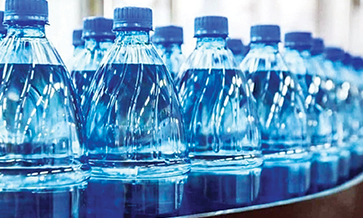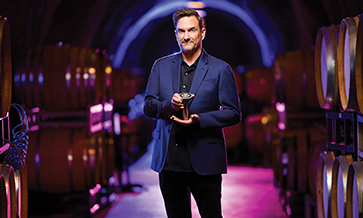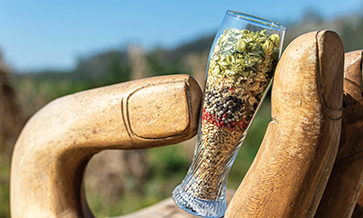Cana, a California-based company, will shortly launch Cana One, the world’s first molecular beverage “printer” that will give everyone the ability to print thousands of beverages from their kitchen – with zero trash from plastic, aluminium and glass containers.
The company is on a mission to change the way the world produces and consumes, and its focus has been the US$ 2-trillion bottled beverage industry. It is funded by The Production Board (TPB) a business foundry re-imagining systems of production across food, agriculture, bio-manufacturing, human health and other life sciences.
The printer can produce a variety of beverages – from juice, soft drinks, and iced coffee to hard seltzers, wine and sophisticated cocktails – without the carbon-intensive, trash-generating, industrial beverage and bottling complex.
Based on scientific breakthroughs and a novel micro-fluidic liquid dispense technology, it lets you personalise every pour – including sugar, caffeine, alcohol, portion size, vitamins and other supplements. It offers unique discovery experiences, novel brands, and options for every lifestyle or preference.
Customised drinks
Customers use its touchscreen display to explore, discover and create their perfect drink from thousands of beverage types and brands. Customers can personalise every beverage to their preferred levels of alcohol, caffeine, or sugar, customising beverages for breakfast, post-workout, dinner, or relaxation.
Says Cana’s CEO, Matt Mahar, whose team includes alumni from Nike, AB InBev, Google and Apple, “It is like having a personalised beverage aisle in your kitchen, with zero trash or hassle from plastic, aluminium and glass containers.”
Unlike pod-based beverage systems, a single Cana One ingredient cartridge can create hundreds of different beverages and should last on average for a month without needing replacement.
The device comes with parental controls including a code to keep certain beverages (including alcoholic and caffeinated options) away from others at home.
Ingredient cartridges will be automatically replaced, at no additional cost to customers, as they run low. They can easily return cartridges in pre-paid packaging, where they are reused up to 12 times before being fully recycled.
Users pay per drink for each beverage made. Per-drink pricing will range from 29 cents to US$ 2.99; the average cost will be significantly lower than bottled beverage retail prices.
Water woes
Customers can reserve their Cana One device today for US$ 99, which will convert to a credit toward purchase. The first 10,000 orders are guaranteed a price of US$ 499. After that, the regular price will be US$ 799. Cana expects first shipments to go out in early 2023, based on current visibility, into its supply chain.
Cana aims to eliminate the need for more than 100 beverage containers per month for the typical US household. In addition, it would eliminate the time-sucking chore of buying, storing, disposing and recycling cans, bottles and other containers at home.
To make a single glass of orange juice takes 200 litres of water; to make a single bottle of wine takes 600 litres of water (to grow the grapes). The US$ 2-trillion beverage and bottling industry uses over 100 million acres of land, requires hundreds of trillions of litres of water, and emits 543 million tonnes of CO2 to produce over 1 trillion single-use plastic, glass, and aluminium beverage containers each year.
Cana’s team spent 3 years studying what we drink at the molecular level, commercialising breakthrough research in flavour and analytical chemistry. Its scientists identified and isolated the specific trace compounds that drive flavour and aroma for thousands of unique commercially available beverages.
They created the world’s first universal beverage ingredient set, which recreates thousands of different drinks using a simplified set of ingredients that can be printed out of a long-lasting ingredient cartridge.
The engineers designed and tested, and have now demonstrated a novel micro-fluidic liquid dispense technology that can affordably, quickly and accurately combine individual flavouring ingredients in a small form factor, delivering a better beverage than the commercially available bottled options.
TBP is building a technology platform to create all household consumables at the point of consumption, with minimal environmental impact, and aims to eliminate the need for bottling, packaging, shipping and other manufacturing waste.
TPB builds new businesses from scratch based on emerging scientific discoveries, partners with exceptional talent, and provides them with the capital, infrastructure, and market insights needed to deliver at least a 10x improvement in the cost, energy, time, or carbon footprint of conventional systems. It is backed by leading strategic and financial investors.














